You are here
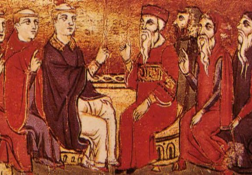 May 15 2021
SCHISM
May 15 2021
SCHISM
In 1534 Henry VIII broke with the Church of Rome to declare himself the Supreme Head of the Church of England. Everyone knows his selfish reasons. But the neurotic desire for a male heir to the throne, God used as the occasion for the Protestant Reformation in England. In the years that followed the Church of England fully embraced Protestant theology.
Read more May 05 2021
SANCTIFICATION
May 05 2021
SANCTIFICATION
And with esteem for my revivalist, pietistic evangelical friends, sanctification is not about more obedience to the latest and greatest set of spiritual disciplines that are guaranteed on the book cover to bring us incremental righteousness. No! It's growing in appreciation for God's imputed perfect righteousness - his promise to never leave us nor forsake us, and to love us with an everlasting love that not even death can touch.
Read more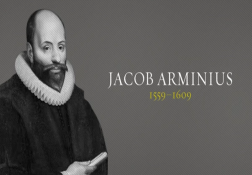 May 03 2021
Why I Am Not An Arminian
May 03 2021
Why I Am Not An Arminian
Does this explain the hairshirt relationship Anglicanism has with its Calvinistic formularies (the Thirty-nine Articles, the Homilies, and the 1662 Book of Common Prayer)?
Read more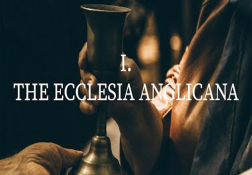 April 16 2021
THE PEDIGREE OF REFORMATIONAL ANGLICANISM - Part 2
April 16 2021
THE PEDIGREE OF REFORMATIONAL ANGLICANISM - Part 2
Cranmer was a gentle and cautious man and his theological positions developed unhurriedly. He may have been somewhat slow and deeply thoughtful in forming his convictions, at least publicly, but, through his thoroughness, when they did take shape, they were sturdy. The Archbishop's conclusions were never rash and when settled they were reliable. His mind was well-suited to his nation's spiritual needs and tempo.
Read more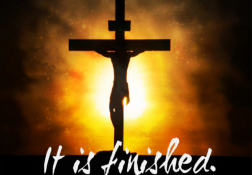 April 04 2021
IT IS FINISHED
April 04 2021
IT IS FINISHED
For years now I have wondered about an opening verse in Paul's epistle to the Ephesians: "Blessed be the God and Father of our Lord Jesus Christ, who has blessed us in Christ with every spiritual blessing in the heavenly places" (1:3). Does EVERY really mean EVERY blessing? If we have been blessed in the past tense (once-and-for-all!) with every spiritual blessing in Christ, then why doesn't my life show it?
Read more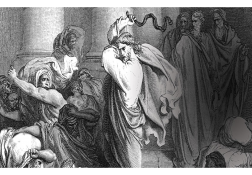 March 29 2021
Jesus cleansed the temple; is it needed again?
March 29 2021
Jesus cleansed the temple; is it needed again?
In the midst of all the familiar, however, lies hidden in plain sight a portion of Scripture often ignored or overlooked altogether. Chapter 21 in Matthew's Gospel records the beginning of the events of Holy Week.
Mark provides the best chronology, explaining that on the first evening of His first day in Jerusalem, Jesus went to the temple, made some observations, left Jerusalem, then traveled to and stayed the night in Bethany.
Read more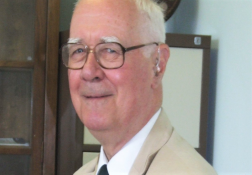 March 26 2021
“John Polkinghorne saw the doctrine of the Trinity as consonant with the entangled world of quantum theory”
March 26 2021
“John Polkinghorne saw the doctrine of the Trinity as consonant with the entangled world of quantum theory”
“The truth of the resurrection fed into John’s writing on what theology and science say about the ultimate fate of the universe”, says Holder.
“John Polkinghorne saw the doctrine of the Trinity as consonant with the entangled world of quantum theory”
Question. Many may have not heard about John Polkinghorne. What were his his main areas of scientific work?
Read more March 24 2021
Unyielding Topography and Our Future
March 24 2021
Unyielding Topography and Our Future
It can be disheartening to recommend an Anglican Church in another city only to find out later that it was indistinguishable in theology and practice from a Roman Catholic or Presbyterian church.
Read more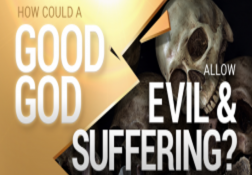 March 23 2021
Thoughts on The Problem of Evil and Suffering (Part 3) -- Final
March 23 2021
Thoughts on The Problem of Evil and Suffering (Part 3) -- Final
Divine Mystery. An extremely common evangelical approach to the problem of evil and suffering is to simply say that the causes are unknowable in God's inscrutable ways. This side of the eschaton, that is in fact frequently true; the problem comes when the Evangelical apologist does not dig any deeper, and is prematurely satisfied with that simplistic answer.
Read more March 21 2021
THE ECOLOGICAL AGENDA AND THE WORD OF GOD: WHAT DO BOTH HAVE TO TELL US?
March 21 2021
THE ECOLOGICAL AGENDA AND THE WORD OF GOD: WHAT DO BOTH HAVE TO TELL US?
INTRODUCTION
Clap or sea with every living being, the whole world, and everyone. Mountains and rivers clap and rejoice. (Psalm 97).
Read more


